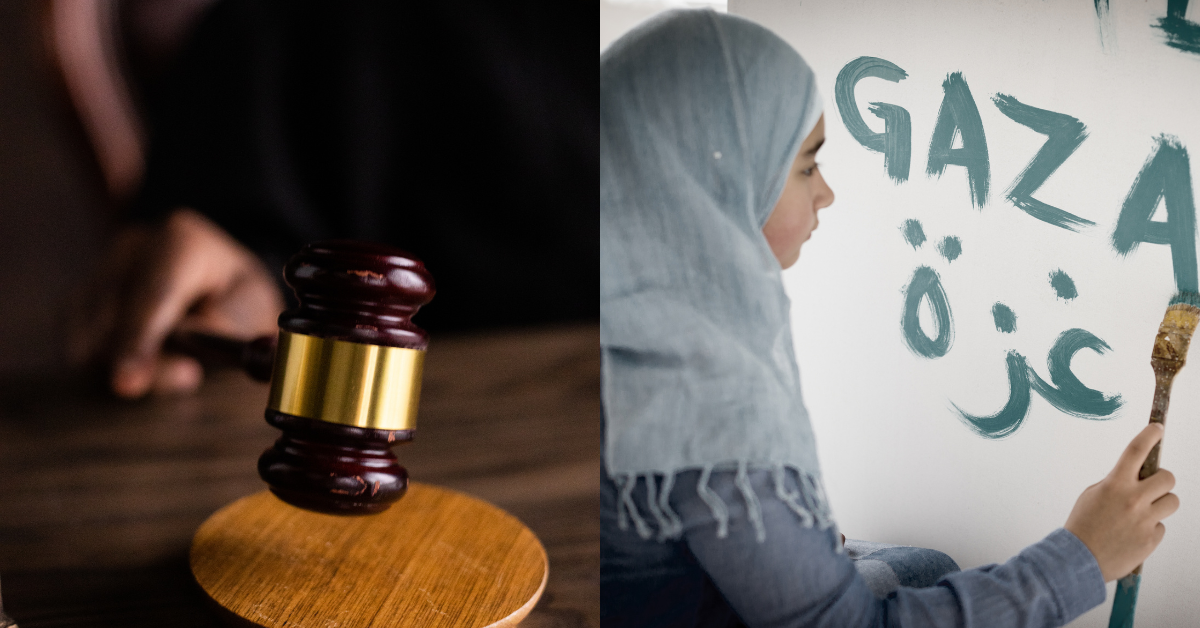“Gaza has become a place of death and despair”
– Martin Griffiths, 2024
South Africa’s case against Israel
Although the International Court of Justice (ICJ) was tasked with addressing the events and aftermath of the 7 October 2023 attack by Hamas, we would be doing an injustice to humanity if we turned a blind eye to the more than 57 years of occupation, oppression and massacre against the people of Palestine by Israel.
On the 29 of December 2023, the Republic of South Africa brought a case against the State of Israel before ICJ, with the genesis of its application being that the Court ought to rule in favour of a ceasefire and ultimately put an end to the genocide against Palestinians.
The case has not only brought to light the atrocities committed by Israel and its supporters, but it has also encouraged the world over to stand as one in the face of injustice.
More than two weeks after these countries stood before the world to deliver their cases, the ICJ has delivered the first part of its judgment which spoke to the most urgent part of the Republic’s application – the call for a ceasefire and answering whether Israel’s actions constitute a genocide.
What were ICJ’s findings in SA vs Israel case?
In an hour-long judgment, the Court has found that:
- It has jurisdiction over the matter;
- The case will not be thrown out which means that Israel has a case to answer;
- The Republic “has standing” to bring the matter before the Court; and most importantly,
- Some of Israel’s actions constitute a genocide.
In its infant stages, the ruling touches on Article 2 of The Convention on the Prevention and Punishment of the Crime of Genocide, or the Genocide Convention. It touches on some of the actions that define and describe genocide such as, inter alia, forcibly transferring children of the group to another group and killing members of a national, ethnic, racial or religious group.
Did ICJ call for a cease-fire in Palestine?
Although the final and overall part of the judgment did not directly call for a ceasefire, the Court has highlighted that Israel’s military operation since Hamas’ reaction has led to, among others, a large number of deaths and injuries and extensive damage to civilian infrastructure. Although the Court acknowledged that these statistics could not be fully verified, President Judge Joan Donoghue stated that more than 25 700 Palestinians have been killed during this period while more than 63,000 injuries have been reported and some 1.7 million persons internally displaced.
Senior Israeli officials’ dehumanising language has not gone unnoticed as the Court acknowledged numerous hatred-driven statements. While the overall judgment might be somewhat disappointing, there have been positive strides made such as the recognition of the rights of Palestinians in the Gaza Strip to be protected from genocide. As a result, the Court has concluded that Israel must, in accordance with the obligations of the Genocide Convention, take measures within its power to ensure:
- Its military efforts do not further escalate;
- Immediate and effective measures to allow humanitarian aid.
- Steps to implement the Court’s order.
- Immediate and unconditional release of hostages.
- The submission of its report to the Court which will outline the steps the State will take to ensure its adherence to the measures given by the court.
Interestingly, even when Israel itself (through the service of its Judge – Judge Aharan Barak voted in favour of one of these orders, Judge Julia Sebutinde of the Republic of Uganda stood firm against ALL of these orders. While Israel has been given one month to compile and submit its report, one wonders what the lack of a ceasefire will mean for the people of Palestine.
ICJ delivers diplomatic judgement
One may almost argue that this was a diplomatic judgment because it seems as though the Court simply delegated its powers to firmly take a stand. Instead, it shifted its responsibility to Israel. Once again, the freedom of the people of Palestine lies at the hands and mercy of its perpetrators. I say this because the voice of the court was not firm enough, the respondent is encouraged to act within its power to adhere to the ruling of the court.
Although the judgment was more than expected, I still stand disappointed that even in simply asking for their right to exist to be protected or simply respected, Palestinians in the Gaza Strip have been let down once again as they will continue to sink further and further into despair. The question on everybody’s minds is what now? What happens during this period whilst Israel pens down its report on HOW it will adhere to the ruling? How many more Palestinians will be killed in the coming month?

This article provides such a helpful yet succinct history to contextualize this current violence in Palestine, while also informing us judiciously on the proceedings of the court case. Really helpful. Thanks Fikile